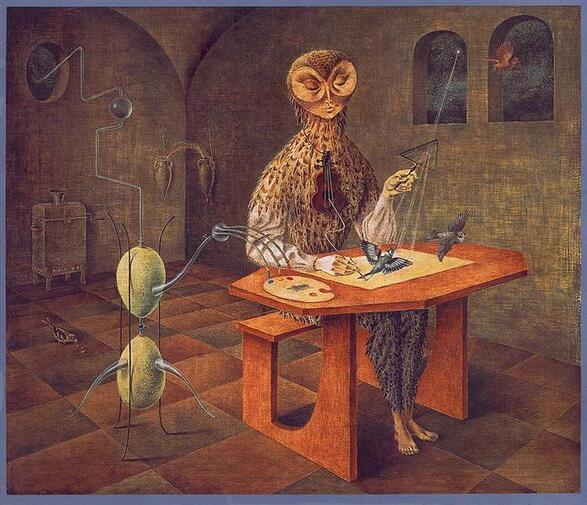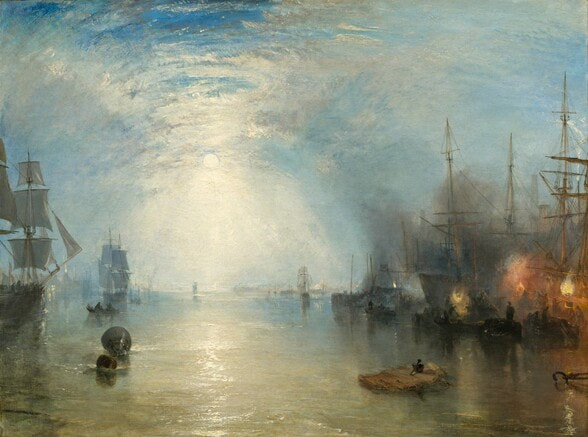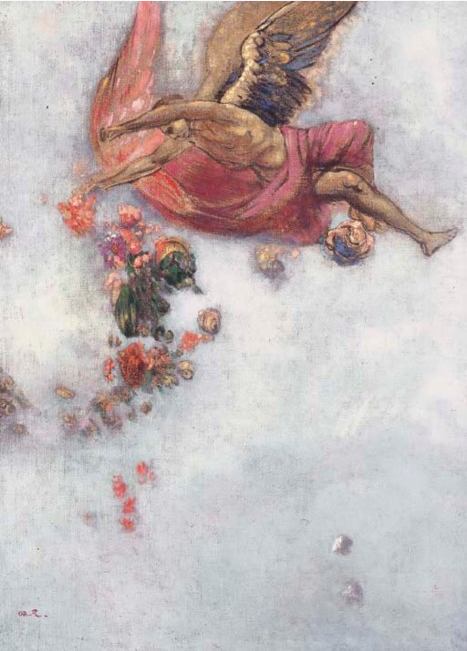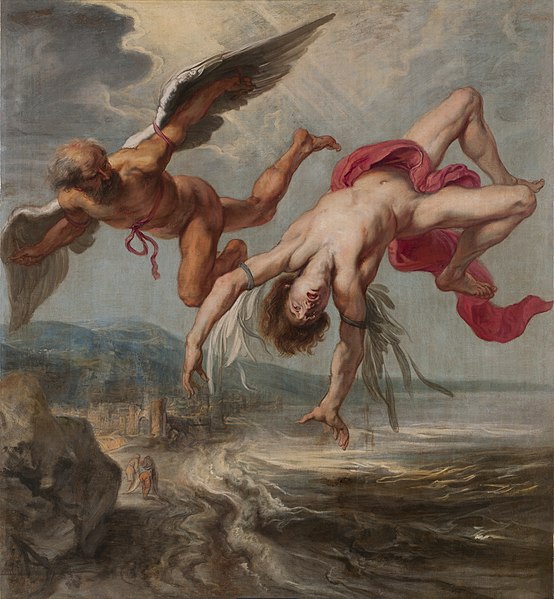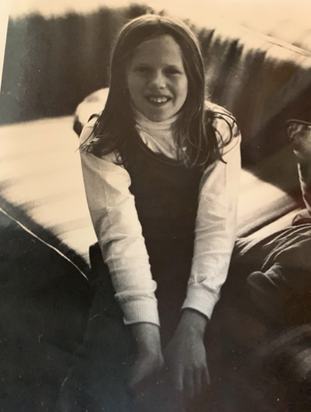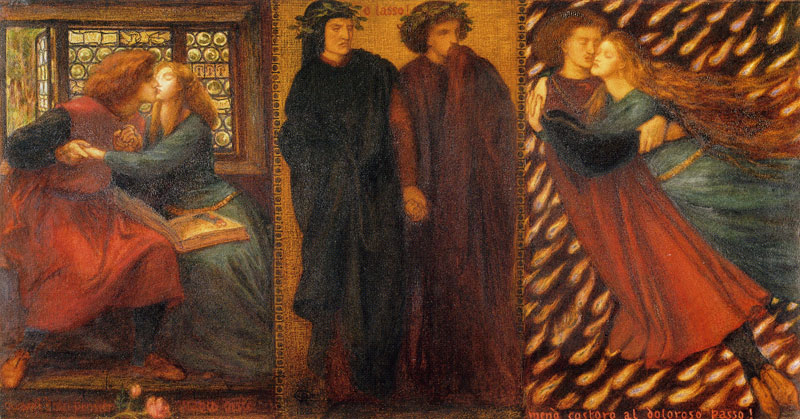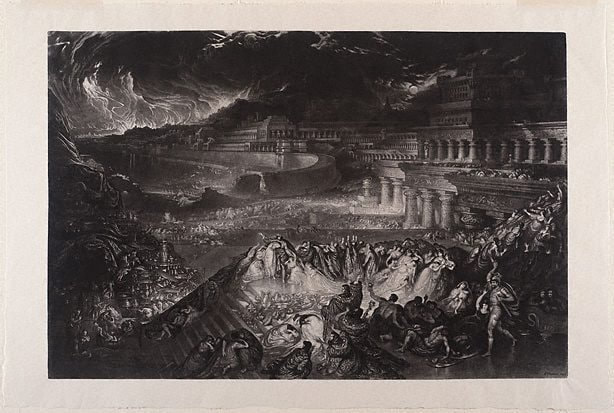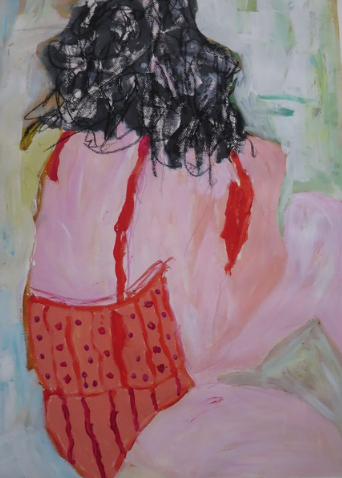|
Devotion Creation smokes slow through the prism of dutiful care artful hands turn over spans of light and dark the cosmic mind burns Each shaded wing tip, brightness at breast and crest, fine fibres of nerve A currawong, a bower bird, a black-backed gull, a hummingbird Who will ever comprehend how this ‘painted bunting’ could live and breathe? All senses tuned ever more subtle time wise time long , headlong into fate A line flows straight Each day thins to a wisp, extinguishes almost, begins again. Species are fading. She glows electric bright, calm, charged with a clear fury and unerring duty Draws on, draws on everything around her to make, to make up For loss, to gain ground, get ahead of the tiny deaths, one after one The newborn sitting hooded with tissue still dazed, testing damp feathers She has no time to help the fledglings to their feet into flight Little flocks accrue in corners then make their way away she can’t stand to see them off Waving in eternal murmurations leaving and waving leaving in waves unseen Jay Bond Australian who returned in 2020 to her city of birth, Melbourne, after a few decades teaching in Asia and the United States, now refocusing on writing. Published writer of poetry: Luna and Meanjin magazines, early 1980s; more recently in Litterateur Rw magazine, Argotist Online Poetry.
1 Comment
by Moonlight for S.P. The water in the print is fading from sun and years but there is still a white shine on each wave from the moon in the vast sky. It’s Turner’s Keelmen Heaving in Coals by Moonlight though I didn’t know his work when I hung it. It was my mother’s, wedged behind another print in a frame, and now it is mine. It doesn’t make me feel any particular way—sun-bleached as it is, so Turner’s fading sky fades faster. There are torches burning in the right corner, perpetually, debris floating away from each keel. The figures at the horizon are almost imperceptible-- they may be mountains. After your book on Turner, I returned to the print, assuming it would open itself to me. I visited the gallery in DC and stood at the real thing thinking only your thoughts, I stood inside your ghost. In the shadow of eternity, the sky holds smoke from the fire, rising and arching over the water. It holds the moon there at the heart of it, though one could almost miss it—the sky so blue and bright white. For the Keelmen, it is always the end of a long night. It looks like morning. Amanda Allen Stallings Amanda Allen Stallings holds a BFA in Poetry from SUNY Potsdam, and an MFA in Poetry from the University of Maryland College Park. Her work has been published in Prairie Schooner, Blackbird, and Glass Mountain. She currently teaches academic and creative writing at the University of Maryland. This poem is written in response to Cyclist and Crow, by Alex Colville (Canada) 1981. Click here to view.
Colville’s Cyclist and Crow As the crow flies, the cyclist glides. After the black rebel, the rider pedals. Light breaks against her bent back and knees. And darkness does not wait but pushes on toward oblivion. In this antic race, they duel: human and animal, inhuman and angel, female and male, dark and day. Each chases self and other-- light rider, dark flier; dark rider, light flier. Dan MacIsaac Dan MacIsaac writes from Metchosin, BC in a house overlooking a salt water lagoon. His poetry has appeared in magazines such as Event, The Ekphrastic Review, Prism, and Canadian Literature. Brick Books published his collection of poetry, Cries from the Ark; and, in 2022, Alfred Gustav Press published his chapbook, Jazz Sessions. Odum The Brave Odum the Brave heard of an evil beast lurking near Landmannalaugar, its body the size of Hekla, its skin cold and slippery like a glacier, its mood as volatile as volcanoes that peppered the land. There was no telling when the beast would pass near a village, kidnap a sheep or a child, and torched the torfbæir with its fiery breath into a pile of ash. Odum the Brave was known as the last descendant of the Huldufólk, elves who lived in palaces carved out of glacier and bathed in blue lagoons. He was pale with a mane of hair the colour of drying moss and lithe, light as a feather, agile like a monkey and wielded a golden spear. Men distrusted Odum and trembled at the sight of his pointed ears, but they lacked the courage and the skill needed to kill a beast. The chieftain promised Odum a lamb and call a holiday by his name if he brought back the beast’s head. Odum followed the prints on black sands, sniffed his way through cliffs and lowlands until he smelled the beast's ashy scent, and found it slumped at the base of basalt columns, asleep, breath wheezing from cavernous nostrils. Odum approached the prey from its rear and was appraising the mass of flesh the size of a small mount, the leathery skin glinting copper when he heard children giggling. He jumped and landed on the beast's back without a noise. To his surprise, a pair of twin boys were drinking from a puddle of tears from the corner of the beast’s eye. The boys yelped in fear at his sight. Sliding off the hide, they squeezed under the belly fur. The beast lifted her head and emitted a soft whistling sound. Odum heard her voice booming inside his head, telling him the boys were the village chieftain's sons who killed their mother in birth in the morning and the same night a fire broke out in the farmhouse killing their sister, blinded another; the chieftain believed the twins cursed and left them for dead in the wilderness where she found them. The beast choked and sobbed as she told the story. The boys used her tears for water and ate sheep she killed. Odum wiped a tear and promised to let them live. He returned to the hidden world of his Huldufólk, cursing the world of men. Christine H. Chen This story was inspired by the painting Twins, by Odd Nerdrum (Norway) contemporary. See it here. Christine H. Chen was born in Hong Kong and grew up in Madagascar before settling in Boston where she worked as a research chemist. Her fiction work has been published in SmokeLong Quarterly, Pidgeonholes, trampset, and other journals. She is a grateful recipient of the 2022 Mass Cultural Council Artist Fellowship and the co-translator from French of My Lemon Tree forthcoming in 2023 by Spuyten Duyvil. Her publications can be found atwww.christinehchen.com Icarus Above Wall Street Tangled in this shimmering cloak and sprawled across a moment between ecstasy and the frenzy of glimpsing my wings of wax melt, I fall releasing my dreams as a cluster of peonies, petals floating in air like lights in the club the whole world blush with transiency Have you seen the way ants circle the bulb I’d rather imagine the way it seems the peony needs the ant to open the nub The sun burns a hole in the stitch at the seam yet even as I fall, I circle my dream Daedalus Calls Out Son, I called out, but it was too late, you started to fall much sooner than this—I was late to hockey practice, to your birth, I missed your first word, first steps, first fist fight, that night you came up behind me to give me a hug. I’d fallen asleep, startled awake at your touch, the glow of the television burning my eyes like light from gunfire down in that dark trench, your arms around my shoulders disappearing, so I missed the chance to hug you back, you ran out the front door I was already dreaming we were running together, not apart, toward the same sun, toward the same light Sheri Doyle Sheri Doyle is a poet living on the treaty lands of the Six Nations of the Grand River within the Haldimand Tract. Her poems have appeared in literary publications, such as The Antigonish Review, untethered magazine, and Rhapsody Anthology. Her chapbook A Dress Made from Light was published by Vocamus Press in 2022. A perfect day includes coffee, conversation, reading, writing, music, and walking—probably in that order. We are very grateful to Marjorie Robertson for her regular contributions to Throwback Thursdays, bringing works from our archive back to readers' attention and encouraging our audience to explore our nearly eight years worth of ekphrastic poetry and prose. You can explore our past by visiting the sidebar to the right, scrolling down for our archive, and clicking on a random month and year. We are sorry to see Marjorie go and wish her all the best in her new endeavours. She will continue to be an important part of the ekphrastic family, as a contributor and friend. Thank you Marjorie!!! ** This week, these powerful poems and the photographs that inspired them will leave you longing for a time and place you thought you’d forgotten. Don’t be surprised if you find yourself reminiscing about late summer at the lake with your cousins, looking for work in a big city, and the loving expression on someone’s face from years ago. Enjoy! On Frida in New York, Photograph by Nickolas Muray, by Eric Steineger From a photo of Frida Kahlo in New York City: “perfectly at home/with your art, here, in Mexico, anyplace.” https://www.ekphrastic.net/the-ekphrastic-review/on-frida-in-new-york-photograph-by-nickolas-muray-by-eric-steineger ** A Photograph of Two Girls in the Country, by Heidi Seaborn A poem that reads like a dream with a dose of nostalgia: “we remain still like an unbroken promise” https://www.ekphrastic.net/the-ekphrastic-review/a-photograph-of-two-girls-in-the-country-by-heidi-seaborn ** Photograph Where I Am Permed, by Gail Peck A black and white photo at Easter and the family’s shared lives are expressed in this piece: “The Pruitt’s called my mother May-ree, taking the loveliness right out of her name.” https://www.ekphrastic.net/the-ekphrastic-review/photograph-where-i-am-permed-by-gail-peck ** Girl, by Maddison Scott This poem takes us back to when we pretended to smoke candy cigarettes because we thought it looked sexy. https://www.ekphrastic.net/the-ekphrastic-review/girl-by-maddison-scott ** The Rothko Chapel, by Darryl Whetter A remarkable photo led to this interesting poem: “particle accelerator, octagonal compression chamber” https://www.ekphrastic.net/the-ekphrastic-review/the-rothko-chapel-by-darryl-whetter ** Illusion of the Visible, by Nancy Avery Dafoe A photo of a woodland pond inspires this transformative poem that I read and re-read: “a scene where tragedy had taken place” https://www.ekphrastic.net/the-ekphrastic-review/illusion-of-the-visible-by-nancy-avery-dafoe ** Pondering Similitude While Listening to “Palace of the Seven Jewels” by the Avery Sharpe Trio, by Joyce H. Munro A song and a photo of a Caryatid in Genova resulted in this delightful poem: “all day your fluffy topknot would snicker at us” https://www.ekphrastic.net/the-ekphrastic-review/pondering-similitude-while-listening-to-palace-of-the-seven-jewels-by-the-avery-sharpe-trio-by-joyce-h-munro ** Georgia, by Robert Walicki A black and white photo of Georgia O’Keeffe holding a cow skull and an image of her Two Cala Lilies on Pink led to this beautiful poem: “red larkspurs and cattle skulls like broken hourglasses” https://www.ekphrastic.net/the-ekphrastic-review/georgia-by-robert-walicki There are almost eight years worth of writing at The Ekphrastic Review. With daily or more posts of poetry, fiction, and prose for most of that history, we have a wealth of talent to show off. We encourage readers to explore our archives by month and year in the sidebar. Click on a random selection and read through our history. Our occasional Throwback Thursday feature highlights writing from our past, chosen on purpose or chosen randomly. Would you like to be a guest editor for a Throwback Thursday? Pick 10 or so favourite or random posts from the archives of The Ekphrastic Review. Use the format you see above: title, name of author, a sentence or two about your choice, or a pull quote line from the poem and story, and the link. Include a bio and if you wish, a note to readers about the Review, your relationship to the journal, ekphrastic writing in general, or any other relevant subject. Put THROWBACK THURSDAYS in the subject line and send to theekphrasticreview@gmail.com. Submit ANYTIME. Let's have some fun with this- along with your picks, send a vintage photo of yourself too! Paolo & Francesca in a Colder Climate Paolo & Francesca frozen in relief, in Cam’s colder climate. Caught askew, still clutching at the Cyprian’s prized amulets. You with your undulant, half- Italian, Janey Morris hair; and me ventriloquizing a 21st Century Vita Nuova. Intertextual, our meetings? Not really; more like a manuscript of misalliance, a bleeding nuisance. Blown out of our parchment skins at the Picturehouse bar- cafe: reckless, trembling at the labials . . . Or were we captioned out? Agape & gazing at some canvas or sonnet-block by Dante Gabriel Rossetti? Left imagining our twinned mythopoeia? Amor’s dredged-out summer bleeds us now into the auburn of early middle age, patronizes us with sedatives, fine art, fine wine, these peripheral trappings. Envisioning steely rain outside the British Museum, as you bent to cut the ceremonial rope like a monochromatic midwife, surrendering me to Lethe’s thick & soupy firmament, to yet another meta-fiction. Before you moved slowly, majestic even, into the Earthly Paradise alone. Mark Wilson Mark Wilson has published four poetry collections: Quartet For the End of Time (Editions du Zaporogue, 2011), Passio (Editions du Zaporogue, 2013), The Angel of History (Leaky Boot Press, 2013) and Illuminations (Leaky Boot Press, 2016). He is the author of a verse-drama, One Eucalyptus Seed, about the arrest and incarceration of Ezra Pound after World War Two, as well as a tragi-comedy, Arden. His poems and articles have appeared in: The Black Herald, The Shop, Tears in the Fence, 3:AM Magazine, International Times, The Fiend, Syncopation, Epignosis Quarterly, Dodging the Rain, Syncopation, Anvil Tongue, The Ekphrastic Review, Rasputin and Le Zaporogue. Falling of Nineveh mother of god’s grandeur, birthing kingdoms, and oozing oil: crushed in the land where Mosul will lay, and where palace vessels burn again. women of the former sacred court, wrapped in charcoal and scarlet coats, watching from their high desert dais, weep in halftones and crumble on stone steps. a silent kingdom. another stolen Nineveh burning. defined by men who: beat their bronze-plated chests and gnash their metal teeth in former graveyards. for twenty thousand lines, the court jester praised her obedience as a virtue or choice. call her mother. call her queen, forgotten. praise liberation invading. praise motherhood long-suffering. Nineveh begets Nineveh reduced. unfair parable of ash. columns no longer clutching the notched relief of outstretched wings and benevolent airstrikes. applaud Mesopotamia united. applaud motherhood sacrificial. from barren steps and ruined Mosul. and a full moon reminding. James Galliher James Galliher is a writer living in northern Alabama with their wife and two cats. James is currently a graduate student and English teacher at the University of Alabama of Huntsville. They spend their spare time writing poetry and scouring used bookstores for weird, old books. The Artisan’s Studio, Cedar Rapids, 1924 At this window bench Hattie would survey the bustling alley behind First Ave. Here’s the telephone niche – one shelf for her to converse while reclining on the bench, a higher shelf so he could chat standing beside his easel, paintbrush in one hand, smoldering fag in the other. Outside the window, under the gable, a large iron eye that once held block and tackle used to haul bales up through the hayloft door. The hissing steam heat, free from pipes beneath the streets, and the radiator cover, tin stamped by his devoted junior high art students in a pattern of flowers – calendulas – to which he would apply paint and tinted glaze to give a bronze age. And filling the floor gap where hay was once tossed down to the manger for the horses, a sunken bathtub so he could stand up- right in the tiny room while showering. And where he bumped out a wall to add light, a window for afternoons and sunsets, he built an array of compartments and pigeonholes, and near the top, seven feet off the floor, a small drawer, where he kept vestigial echoes of his heart’s secret. David Duer David Duer is currently a docent guide at the University of Iowa's Stanley Museum of Art and the Cedar Rapids Museum of Art, where he’s come to know the works he writes about intimately. His work has been published in Ascent, Exquisite Corpse, Milkweed Chronicle, North American Review, and Poetry, among others. Girl on a Beach Smooth skin pinked up after ocean’s bracing cold, her charcoal hair wildly tangled by the surf, shot through with seaweed; she’s glistening. She turns away from the others, gazing back at the endless waves, the water calling her back before she’s even dry, before she’s reclaimed by the sand, before she plunges back into the life of her parents, her friends on the beach. She will come back to them, when she’s good and ready. Now they see only the broad blank slate of her back, the twist of her torso beneath a blousy bathing suit, red-orange, striped and dotted; childish. But her round thighs spreading on the sand, are not a child’s. She sighs, and props one arm against a bent knee, the better to set her stance. She will come back to them, when she has to, when hunger or thirst or the sound of laughter weakens her resolve. Not yet though. Not while she twists with the visceral pull of tides, savors the salt-scented breeze, cocks her ears to the crash-boom of breakers. Not while she searches out a thin line of horizon with eyes no one else can see. Sara Palmer Sara Palmer is a retired psychologist and an active writer, reader, hiker, knitter, and volunteer with literary and health nonprofits. Her poems have appeared in Yellow Arrow Journal, Pen in Hand, and Poetry is Life: Writing with Yellow Arrow. She lives in Baltimore, MD. |
The Ekphrastic Review
COOKIES/PRIVACY
This site uses cookies to deliver your best navigation experience this time and next. Continuing here means you consent to cookies. Thank you. Join us on Facebook:
Tickled Pink Contest
April 2024
|
